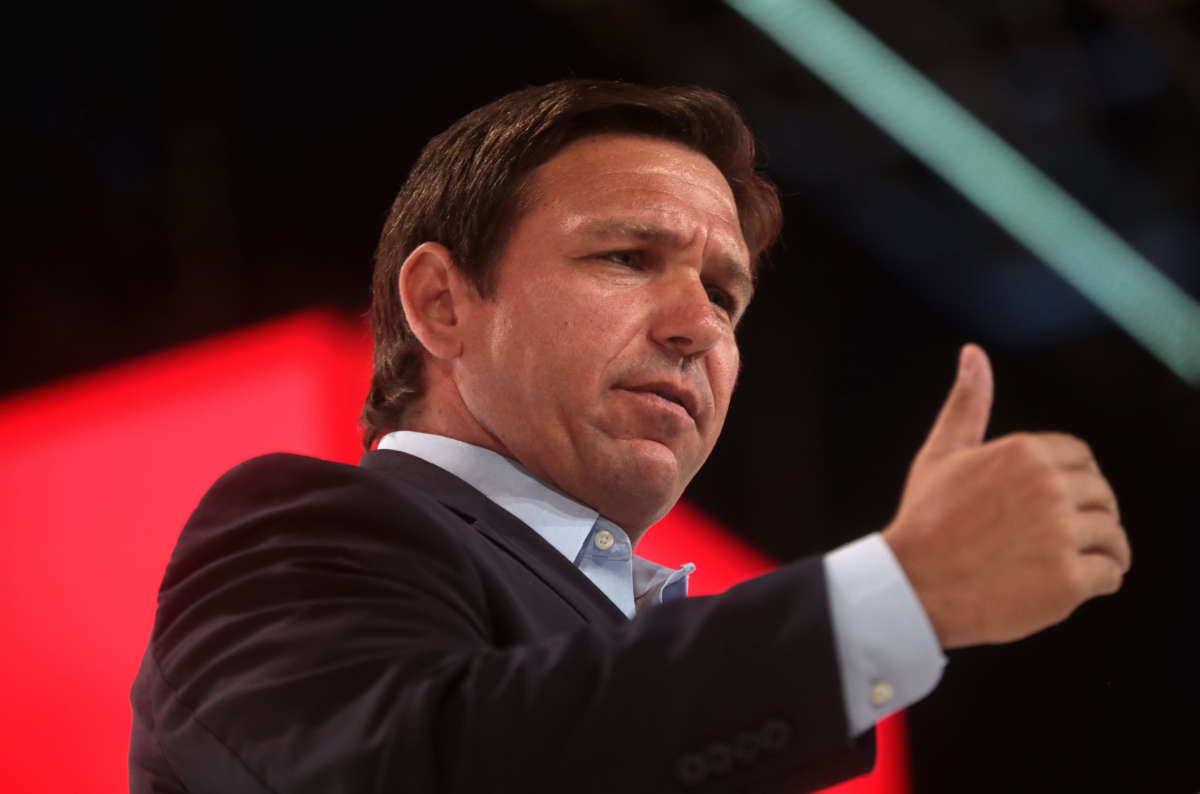An elections bill that Florida Gov. Ron DeSantis (R) signed into law this week restricts municipalities from being able to determine how to organize their elections, and bans the use of ranked-choice voting.
Senate Bill 524 creates a new police force that is tasked with aggressively investigating claims of voter fraud throughout the state — a move that experts have warned is blatantly fascist, as such fraud doesn’t happen on a scale that would warrant expanding surveillance.
The bill also contains a number of additional, lesser-known provisions, including a ban on the use of ranked-choice voting in the state.
Ranked-choice voting “makes democracy more fair and functional” by ensuring that voters are given “the option to rank candidates in order of preference,” the voting organization FairVote explains on its website.
The ranked-choice voting process is a simple one: voters rank all candidates on the ballot in order of whom they most prefer. If no single candidate receives a majority of votes in the first round, the lowest-ranked candidate is eliminated. If you ranked the eliminated candidate as your first choice, your vote still counts — it’s simply redistributed to your second-choice candidate. The process is repeated until a single candidate receives a majority.
Ranked-choice voting is frequently praised for allowing voters to pick whichever candidates they most prefer without worrying that doing so will be “throwing away” their ballots, a problem that arises under the “first past the post” system of voting. In both conservative and progressive areas of the country where ranked-choice voting is used, voters have reported being overwhelmingly satisfied with its implementation.
But despite the popularity of ranked-choice voting, DeSantis and Republicans in Florida have now forbidden its use throughout the state.
The bill prohibits the use of ranked-choice voting “to determine election or nomination to elective office,” and voids any “existing or future local ordinances authorizing the use of ranked-choice voting.” That means that no village, town, city or county can utilize the voting process from now on, and that any city that has already approved of ranked-choice voting can no longer employ such a system.
One city in the state had previously passed an ordinance to implement ranked-choice voting, while another was exploring doing so. In 2007, the Sarasota city council voted to use ranked-choice in its elections, but the state never certified the software that would be needed to implement the process. In 2021, the city council of Clearwater moved to put the idea up for a vote among its residents in this year’s elections.
Unless the new law is repealed, however, neither of those communities will be able to use ranked-choice voting going forward.
Press freedom is under attack
As Trump cracks down on political speech, independent media is increasingly necessary.
Truthout produces reporting you won’t see in the mainstream: journalism from the frontlines of global conflict, interviews with grassroots movement leaders, high-quality legal analysis and more.
Our work is possible thanks to reader support. Help Truthout catalyze change and social justice — make a tax-deductible monthly or one-time donation today.
